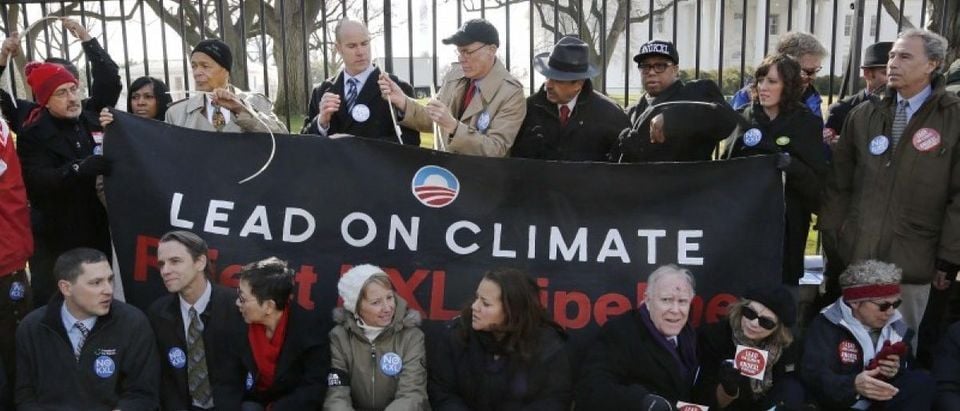Academics are teaching college students how to be climate and energy advocates, not climate scientists, a noted global warming researcher said Friday.
“What I have observed is that students are increasingly being fed climate change advocacy as a surrogate for becoming climate science literate,” David Legates, a professor of geography at the University of Delaware, wrote in a blog post Friday at global warming skeptic website Wattsupwiththat.
Legates added: “This makes them easy targets for the climate alarmism that pervades America today.”
Studying Earth’s climate is a complicated mess, Legates wrote, mostly because it requires academics and students having a detailed understanding of several natural science fields. Climate research has gained a lot of traction as the fear of so-called man-made global warming continues.
The former director of the Center for Climatic Research at Delaware suggested the complications associated with the field should prompt researchers to ask whether students are learning the nuts and bolts underlying climate study.
“At the very least, a student should be able to identify and describe the basic processes that cause Earth’s climate to vary from poles to equator, from coasts to the center of continents, from the Dead Sea or Death Valley depression to the top of Mount Everest or Denali,” Legates wrote. They also need to understand how “oceans, biosphere, cryosphere, atmosphere and hydrosphere” work in in terms of an ever-changing climate.
Unfortunately, at the U.S. Global Change Research Program defines climate science literacy as “an understanding of your influence on climate and climate’s influence on you and society.”
This definition, according to Legates, should prompt academics to ask a battery of questions: “How can students understand and put into perspective their influence on the Earth’s climate if they don’t understand the myriad of processes that affect our climate? If they don’t understand the complexity of climate itself? If they are told only human aspects matter? And if they don’t understand these processes, how can they possibly comprehend how climate influences them and society in general?”
He also criticized scientific organizations such as the University of Delaware, the Maryland and Delaware Climate Change Education Assessment and Research programs for distinguishing climate from weather by stating that, “climate is measured over hundreds or thousands of years,” and defining climate as “average weather.” These definitions, Legates explained, lead students to presuppose that “climate change is unordinary in our lifetime and, by implication, undesirable.”
But climate is highly voluble, and constantly in flux, Legates added — it’s never static.
The Delaware-Maryland program, according to Legates, identifies rising greenhouse gasses caused by carbon dioxide, methane and nitrous oxide as the only reason why temperatures have increased 1.1 degrees during the past 100 years. The program then instructs students to save energy and calculate their carbon footprint – this, Legates wrote, is considered climate literacy.
These future climate change warriors, Legates notes, have little understanding of how much water influences almost every aspect of the Earth’s energy balance; water literally affects all aspects of life, he added. “Since precipitation varies considerably from year to year, changes in water availability substantially affect our climate every year.”
Studies seem to corroborate Legate’s position.
A major scientific study conducted at the University of Reading on the interactions between aerosols, which are secreted through coal production and vehicle travel, and clouds is much weaker than most climate models assume, meaning the planet could warm way less than predicted. These greenhouse gas emissions, in other words, are not affecting the climate as much as once believed, according to the study.
“Currently, details are few, but apparently the results of a major scientific study on the effects of anthropogenic aerosols on clouds are going to have large implications for climate change projections—substantially lowering future temperature rise expectations,” Cato Institute climate scientists Patrick Michaels and Chip Knappenberger wrote in a June blog post.
Legates concluded his post by suggesting that “climate science curriculum has been co-opted, to satisfy the climate change fear-mongering agenda that pervades our society today.”
Follow Chris on Facebook and Twitter
All content created by the Daily Caller News Foundation, an independent and nonpartisan newswire service, is available without charge to any legitimate news publisher that can provide a large audience. All republished articles must include our logo, our reporter’s byline and their DCNF affiliation. For any questions about our guidelines or partnering with us, please contact licensing@dailycallernewsfoundation.org.


